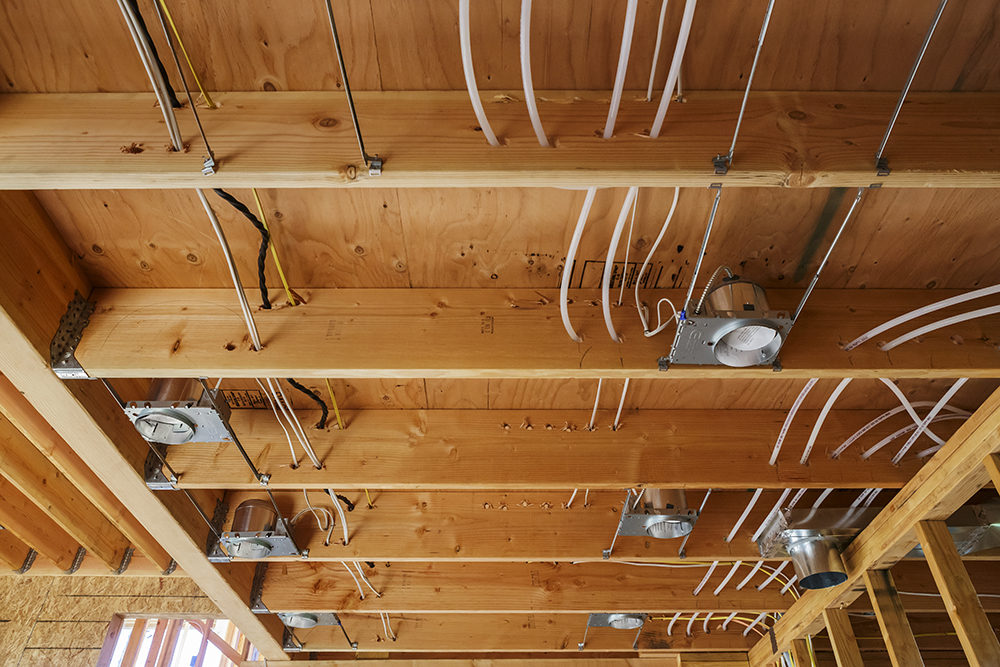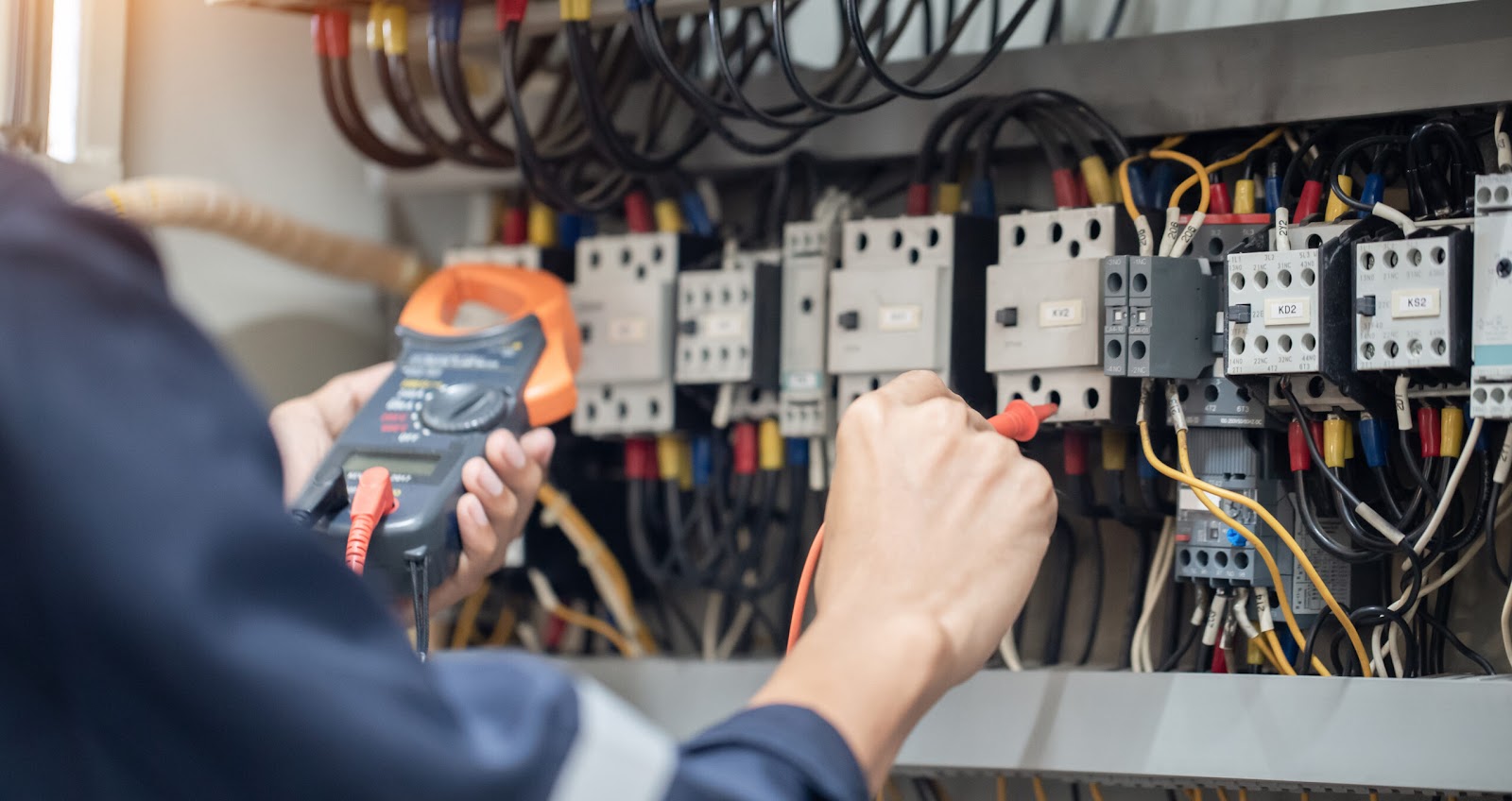July 19, 2025
Embarking on a house rewiring project can be a daunting task, but with the right considerations and preparations, it can also be an exciting opportunity to enhance the safety and functionality of your home. From understanding the house rewiring process to ensuring compliance with electrical regulations and implementing safety precautions, there are key factors to keep in mind to ensure a successful project. Hiring a professional house rewiring service and budgeting for the project are crucial steps, as is minimising disruption during the process. Additionally, selecting the right materials and equipment, as well as testing and quality assurance after the rewiring, are essential for the long-term care of your newly rewired house. In this guide, we will delve into each of these considerations in detail to provide you with the knowledge and confidence to undertake a house rewiring project with ease and success. So, let's dive in and explore the key considerations for your upcoming house rewiring endeavour!

Credits: servicewiseelectrical.com
Undertaking a house rewiring project starts with a thorough assessment of the current wiring system. This involves examining the condition of the existing wires, outlets, and electrical panels to determine if they meet safety standards and are capable of supporting the new wiring layout.
Once the initial assessment is completed, careful planning for the new wiring layout comes into play. This includes determining where new outlets, switches, and light fixtures will be located throughout the house to ensure optimal functionality and convenience. Additionally, factors such as local building codes and regulations must be taken into consideration at this stage.
Safety measures also play a crucial role in house rewiring. It's essential to prioritise safety throughout the entire process by using proper insulation materials, grounding systems, and circuit protection devices to safeguard against potential electrical hazards. Taking these key considerations seriously can help ensure that your house rewiring project is not only successful but also safe for all occupants.
When it comes to rewiring your house, it's crucial to hire a professional and reputable electrical service. Take the time to research different companies in your area and read customer reviews to find one with a solid reputation. Look for an electrician who is properly licensed and insured, as this will ensure that they have met certain qualifications and standards for safety and quality.
Don't just settle for the first quote you receive - shop around and gather multiple quotes from different companies. This will give you a better idea of the average cost for house rewiring in your area, as well as the opportunity to compare services offered by each company. By doing so, you can make sure that you are getting not only the best price but also high-quality workmanship for such an important project.
By taking these key considerations into account when hiring a professional house rewiring service, you can ensure that your home is in good hands. Investing time at the beginning of the process to find a trustworthy electrical company will ultimately save you time, money, and headaches down the line. So take your time, do thorough research, and don't be afraid to ask questions before making your decision!
When it comes to house rewiring, the choice of wiring materials is crucial. It's important to select materials that are durable, safe, and suitable for your specific electrical needs. This means considering factors such as the size of your home, the type of electrical load it will carry, and any special requirements for certain areas.
In addition to wiring materials, selecting appropriate electrical fixtures is key for a successful house rewiring project. This includes switches, outlets, lighting fixtures, and other components that will be integrated into your new electrical system. Consider factors such as energy efficiency, design aesthetic, and compatibility with modern technology when making these choices.
Last but not least, ensuring compliance with local building codes is essential when undertaking house rewiring. Building codes exist to ensure safety and standardisation in construction practices. Be sure to research the specific regulations in your area regarding electrical work and make sure that all materials and equipment used meet or exceed these standards.
Embarking on a house rewiring project can be an exciting endeavour, especially when it comes to budgeting. It's like laying the groundwork for a brand new electrical system that will power your home for years to come. As you estimate the total cost of materials and labour, let yourself get excited about the possibilities of an upgraded electrical setup.
In addition to setting aside funds for the main costs, don't forget to allocate some contingency money. This will ensure that you're prepared for any unforeseen expenses or changes in plans during the rewiring process. You might even find excitement in planning out these contingency funds, knowing that they'll provide peace of mind as your house undergoes this important transformation.
And if your budget requires some flexibility, why not explore financing options? Rather than seeing it as a burden, view financing as an opportunity to make your dream of a fully updated electrical system a reality. The prospect of making affordable monthly payments could even add an extra layer of excitement to the overall rewiring project.
Undertaking house rewiring may seem like a daunting task, but it doesn't have to disrupt your daily life. One way to minimise disruption is by creating a timeline for the project. This allows you to plan around the work and make arrangements accordingly.
Another important consideration is making arrangements for temporary power supply during the rewiring process. By ensuring that there's minimal downtime in electrical access, you can continue with your day-to-day activities without major inconvenience.
Lastly, communication is key when it comes to minimising disruption during house rewiring. If you have family members or tenants living in the house, keeping them informed about the timeline and any necessary precautions will help ensure a smooth process with minimal disruptions.

Credits: hocopower.com
It's absolutely crucial to ensure that any house rewiring project complies with the local electrical codes and regulations. This not only ensures the safety of your home but also prevents any legal issues down the line. Take the time to thoroughly understand the specific codes and requirements in your area to guarantee that your project meets all necessary standards.
Don't forget to obtain all the required permits for your rewiring project. Skipping this step could result in costly fines or even having to undo and redo parts of the work. By obtaining permits, you're not only staying compliant with regulations but also providing documentation that assures potential buyers (if you ever decide to sell) that the work was done properly and legally.
Keep in mind that scheduling inspections as required is a non-negotiable part of compliance with electrical regulations. Having a professional inspector review your rewiring work helps confirm that everything has been completed up to code, giving you peace of mind and ensuring that your home is safe for you and your family.
When it comes to house rewiring, safety should always be the number one priority. One of the key considerations is implementing proper electrical grounding to prevent any potential shocks or electrical hazards. This involves ensuring that all components are properly grounded and connected to earth, providing a safe path for electricity in case of a fault.
In addition, using personal protective equipment (PPE) is essential when undertaking house rewiring. This includes wearing insulated gloves, safety goggles, and appropriate footwear to protect against potential electric shock or contact with hazardous materials. By prioritising PPE, you can significantly reduce the risk of injury during the rewiring process.
Furthermore, practising safe handling of electrical tools is crucial for preventing accidents and injuries. Always ensure that tools are in good condition before use and never carry out work on live circuits unless absolutely necessary. Following these safety precautions will help ensure a smooth and secure house rewiring project.
Once the house rewiring is complete, it's time to conduct rigorous testing to ensure that everything is functioning as intended. This includes checking all new wiring to make sure there are no faults or defects that could cause issues down the line.
We also take the time to verify that all electrical outlets and switches are in proper working condition. We want to guarantee that homeowners can rely on their electrical system for years to come without any hiccups. It's all about peace of mind and ensuring a safe environment for everyone in the household.
Should we find any issues during testing, you can rest assured they will be promptly addressed before declaring the project complete. Our commitment to quality means leaving no stone unturned when it comes to making sure your newly rewired house meets our strict standards.
Now that your house has been rewired, it's important to take proactive steps to ensure its longevity and safety. One key consideration is to understand the warranty on the new wiring. This will give you peace of mind knowing that if anything goes wrong with the rewiring, you are covered. Be sure to keep all warranty documentation in a safe place for easy access.
Another essential aspect of long-term care for a rewired house is scheduling regular electrical inspections. This will help to catch any potential issues early on before they become major problems. It's recommended to have an electrician come in at least once a year to assess the condition of the wiring and make any necessary repairs or upgrades.
And finally, it's crucial to know when it's time to upgrade electrical systems in your home. As technology advances and our energy needs evolve, older electrical systems may no longer be sufficient. Keeping abreast of these changes and knowing when it's time for an upgrade can help maintain the safety and efficiency of your home.
At EA Electrics, we understand the importance of reliable and professional electrical services for local residents and businesses in South West Sydney. Our team of trusted electricians is dedicated to providing top-notch electrical solutions, from installations to repairs and maintenance. With our extensive experience and commitment to quality, you can trust us to handle all your electrical needs with utmost professionalism and expertise. Whether it's residential or commercial, we are here to ensure that your electrical systems are safe, efficient, and reliable. Choose EA Electrics for peace of mind and exceptional service.
House rewiring is the process of replacing or upgrading the electrical wiring system in a house. It involves removing the old wiring and installing new wires to ensure the safety and efficiency of the electrical system.
House rewiring is necessary in several situations. It is typically required for older houses with outdated or deteriorating wiring systems. It may also be necessary when adding new electrical appliances or when experiencing frequent electrical issues such as tripped breakers, flickering lights, or overheating outlets.
The duration of house rewiring depends on various factors such as the size of the house, the complexity of the wiring system, and any additional electrical work required. On average, it can take anywhere from a few days to a few weeks to complete the rewiring process.
Yes, it is highly recommended to hire a professional electrician for house rewiring. Rewiring involves working with electrical systems, which can be dangerous if not handled properly. A professional electrician has the knowledge, skills, and experience to ensure the rewiring is done safely and up to code.
There are several key considerations when undertaking house rewiring. These include assessing the condition of the existing wiring, planning the wiring layout, determining the electrical load requirements, obtaining necessary permits, and ensuring compliance with local building codes and regulations.
Key considerations when undertaking house rewiring include understanding the process, hiring a professional service, selecting the right materials, budgeting, minimising disruption, ensuring compliance with regulations, taking safety precautions, testing and quality assurance, and long-term maintenance. This involves assessing current wiring, planning for new layout, researching reputable companies, obtaining permits, practising safe handling of tools, and scheduling regular inspections.